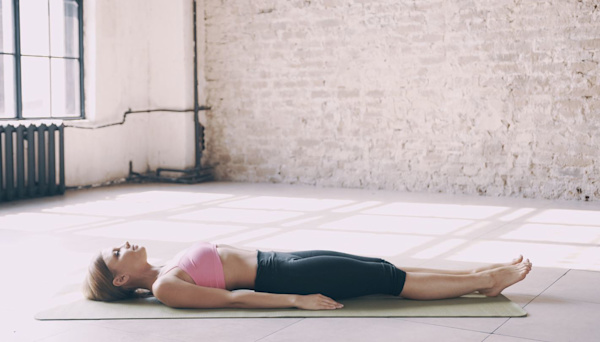
What is progressive muscle relaxation & how to practice it
Mastering PMR: Comprehensive Guide to Stress-Free Living
Progressive muscle relaxation (PMR) is more than just a trending wellness practice—it’s a tested and established technique with deep roots and far-reaching health benefits. This powerful tool, first introduced in the 1920s by Dr. Edmund Jacobson, offers an array of wellness applications, including stress and anxiety reduction, insomnia relief, and alleviation of certain types of chronic pain. [1]
Let’s dive in to understand the magic behind progressive muscle relaxation and how it can elevate your health and overall well-being.
The Essence of Progressive Muscle Relaxation (PMR)
PMR is a relaxation technique which focuses on alternately tensing and relaxing specific muscle groups. The practice starts at one end of your body—say your toes—and gradually moves upwards. Alternatively, you can start at the head and work downwards. Each small, specific area of the body, such as the top of your head, your stomach muscles, or your toes, is targeted one at a time.[2][3][4]
The underlying principle of PMR is that physical relaxation promotes mental relaxation. As you deliberately relax your muscles, your body shifts from the "fight-or-flight" mode governed by the sympathetic nervous system to the more tranquil "rest-and-digest" mode operated by the parasympathetic nervous system. Essentially, PMR is like pressing the pause button on stress, allowing your body to shift into neutral.[5]
Wide-Ranging Uses for Progressive Muscle Relaxation
PMR for Anxiety: Progressive muscle relaxation has proven its value across a range of uses. For one, it is a potent stress and anxiety reliever. The process of actively engaging with and releasing tension from various muscle groups has been shown to decrease heart rate, lower blood pressure, and reduce cortisol levels, all of which contribute to a state of deep relaxation.[6]
PMR for Sleep: Additionally, PMR can significantly improve sleep quality by inducing a state of physiological tranquility, making it a viable solution for those struggling with insomnia. Moreover, it has demonstrated effectiveness in reducing symptoms of chronic pain conditions, making it a valuable addition to comprehensive pain management plans.[7][8][9]
Progressive Muscle Relaxation Steps: The Path to Relaxation
PMR Techniques: PMR can be practiced virtually anywhere and is relatively simple to execute. To start, you would typically just close your eyes, breathe deeply to slow down your sympathetic nervous system, and sequentially tense and relax each muscle group. For example, begin with your toes, tense them hard while inhaling, hold for five seconds, then exhale and relax the muscles for five to 10 seconds.
This cycle of tension and relaxation is then repeated with each muscle group, working your way through your lower and upper body, all the way up to your head. Regular practice can result in enhanced mastery of the technique, leading to deeper states of relaxation.
The Empirical Efficacy of Progressive Muscle Relaxation
PMR's effectiveness is not just theoretical; it's been validated by scientific research. A 2021 study, published in the journal "Evidence-Based Complementary and Alternative Medicine" found that PMR, along with deep breathing and guided imagery, significantly increased the state of relaxation in participants.[10]
Moreover, PMR has demonstrated effectiveness in reducing the frequency of migraines, alleviating lower back pain, and even reducing dental anxiety. [11][12][13]
These findings underscore the far-reaching potential of PMR as a relaxation technique and a tool for improving psychological and physiological well-being.
Mastering Progressive Muscle Relaxation: Top Tips
The beauty of PMR lies in its simplicity and adaptability, but a few tips can enhance your practice. Firstly, be patient with yourself. Achieving a deep state of relaxation takes practice and time. Secondly, aim for consistency. Regular PMR practice is key to reaping its full benefits. Lastly, incorporate deep, slow, mindful breathing throughout the process. Deep breathing further promotes relaxation and aids in focusing your attention on your body.
Also, keep in mind that while PMR is generally safe, it may not be suitable for those with certain conditions, such as severe muscle spasms or injuries. Always consult with a healthcare provider before starting any new relaxation or exercise regimen.
Progressive Muscle Relaxation Is A Pathway to Health Well-being
The potential of Progressive Muscle Relaxation is profound, offering an accessible and scientifically-backed pathway to improved health and wellness.
As we increasingly seek tools to navigate our fast-paced, stress-prone lives, PMR offers a unique chance to turn inward and allow our bodies to naturally recalibrate and replenish.
Whether your goal is to find relief from anxiety, chronic pain, or sleep issues, or you simply seek a deeper sense of relaxation, PMR could be your next step on the journey towards optimal well-being.
Related stories

How Smartphone Photography is Changing Your Memory
Is smartphone photography helping you remember or making you forget? Learn how taking too many pix affects memory & how mindful photography keeps you present.

What Is Sleepmaxxing? The Trend for Your Best Night’s Sleep
Discover Sleepmaxxing, the viral trend elevating sleep into a self-care ritual. Optimize rest with sleep hygiene, tech-free zones, and mindful alarm clocks.

How Technology is Reshaping Childhood & Society
Explore how technology shapes childhood and society, and how mindful tech and tools like Mudita Kompakt can help combat its downsides.
If you'd like to receive the best stories from our blog, keep up to date with our progress and get notified about our product releases and special discounts.